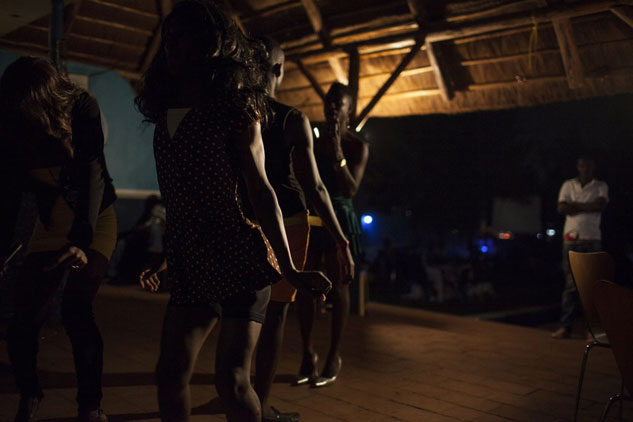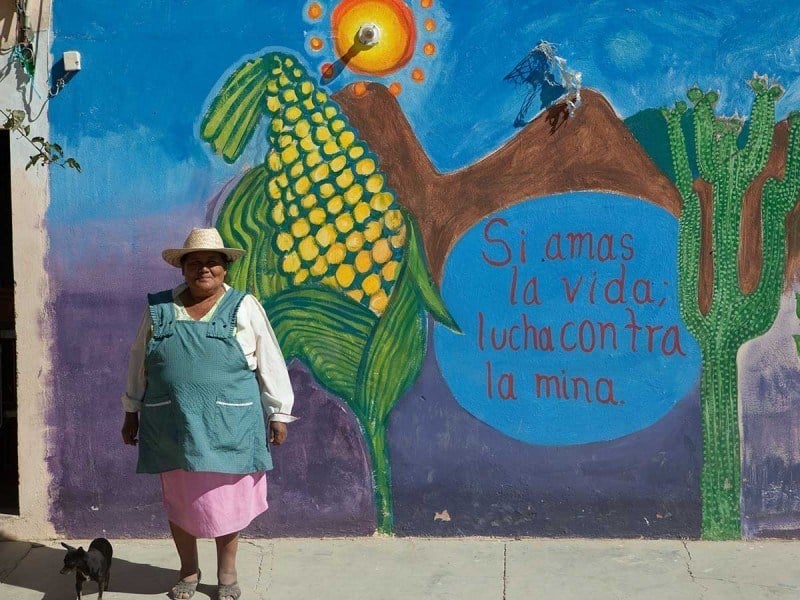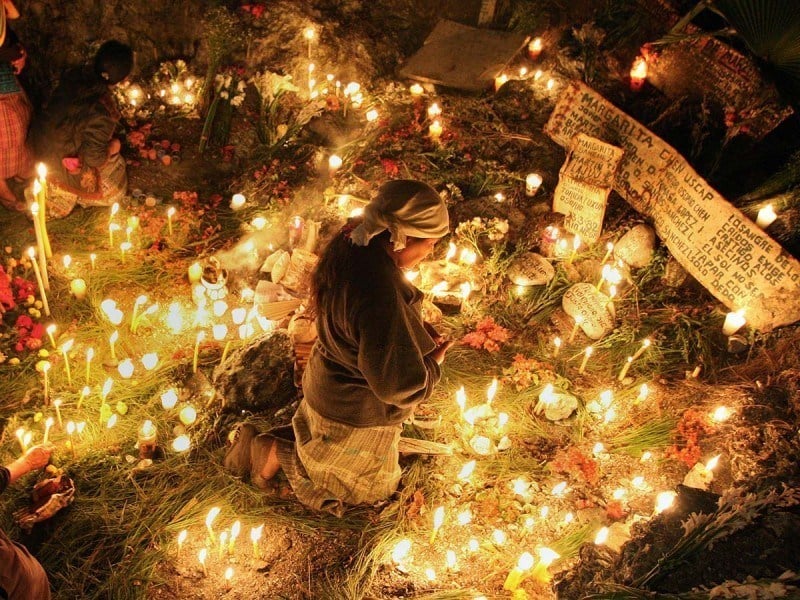Originally published in Out Magazine.
Lesbian couple Pen Nol, left, and Chhon Nhoeng, live together on their farm in rural Cambodia. They are members of Rainbow Community Kampuchea (RoCK), a Phnom Phen-based LGBT advocacy organization supported by AJWS.

Nheap Pen, center left, and Yarn Mok, center right, live with their grandchildren in rural Cambodia. The couple has participated in LGBT advocacy trainings at RoCK. The couple first met in the 1980s, and they have slowly gained the acceptance of other people in their village—a rare phenomenon in Cambodia. “It’s kind of unique,” Mok said. “We do not have this so many other places.” Pen added: “We are genuinely in love. We care for each other. We help each other in times of trouble.”

A man who works with an AJWS-supported LGBT rights organization in Uganda shields his face with a local tabloid article. The piece incited public hatred and revealed the names and faces of LGBT advocates; many of them fear violence from homophobic extremists.

Srun Srorn has worked with RoCK and other LGBT rights groups in Cambodia.

Members of Transgender Equality Uganda (TEU) dance in drag at one of the few bars in Uganda that has accepted LGBT people. Many TEU members work as sex workers due to limited job opportunities; in particular, transgender women who sell sex in Uganda often face violence and abuse from their clients.

Kasha Jacqueline Nabagesera is the founder of Freedom and Roam Uganda (FARUG), a human rights organization devoted to equality for lesbian, bisexual and transgender women. She is open about her lesbian identity, and she’s facing increased threats in her country because of intense hostility toward LGBT people.

FARUG member “Sara” used a grant from AJWS to start a business selling shoes at a shopping center in downtown Kampala. Many FARUG members have lost jobs after employers discovered they were homosexual, bisexual or transgender.

Dayanara Nicole Diaz Gonzalez is a trans woman whose life has completely turned around because of her involvement with Asociacion Nicaraguense de Transgeneras (Association for Transgender Nicaraguans, or ANIT). As a teenager, Dayanara suffered discrimination in school and alienation from her family because of her gender expression. She dropped out of school and became a sex worker in Managua to support herself. She developed a drug addiction and ended up in prison, where was raped repeatedly. After her release from prison, she learned she was HIV-positive, and then discovered ANIT’s transgender rights advocacy and started attending their meetings; now she is finishing school, living at home again, and working as the ANIT’s health outreach coordinator.

In the remote town of Waspam in Nicaragua, LGBT activist Abimael Padilla, 22, suffered discrimination for many years at school. After receiving training and support from Movimiento de la Diversidad Sexual Costeña (Coastal Movement of Sexual Diversity, or MODISEC), he was able to improve the situation by engaging with fellow students, teachers and his own family.

Activists from Minority Women in Action, an LGBT rights organization in Kenya.

Activists from the Gay and Lesbian Coalition of Kenya (GALCK), which works to advance LGBT rights.

An activist from GALCK.











